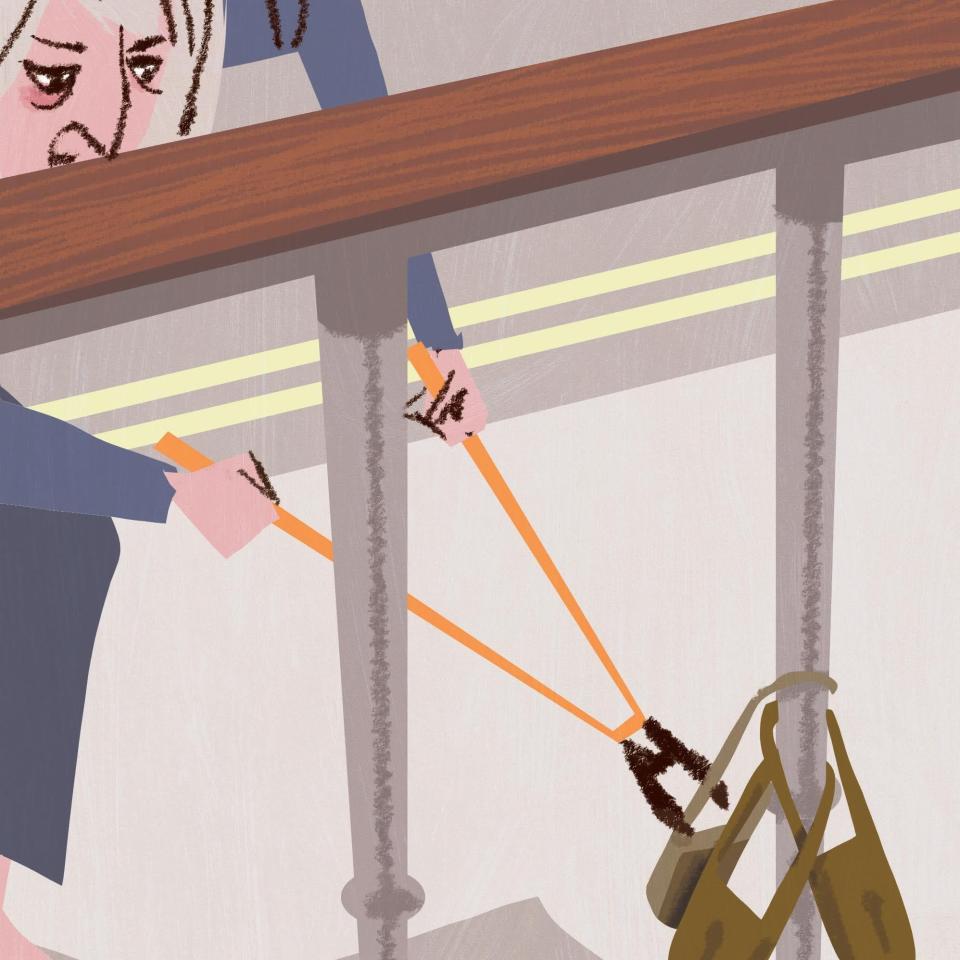What would happen to your state pension if the 'triple lock' was scrapped?

Over 10 million people could find their spending power in retirement at risk if – as has been mooted by some – the Government drops the key “triple‑lock” policy applying to the state pension.
The “lock” promises that the state pension will rise by the highest of one of three measures: wage growth, inflation or 2.5pc. In a move clearly designed to appeal to older voters ahead of June’s election, the Labour Party has promised to safeguard this mechanism.
But last week Prime Minister Theresa May would not be drawn on whether she would follow suit and extend the pledge into the next Parliament.
Last month, an independent review of the state pension commissioned by the Government recommended scrapping the protection.
Funding the state pension was worth 5.2pc of Britain’s entire economic output last year and is set to rise to 6.7pc by 2066. Removing the triple lock would bring this down to 5.9pc, the review said.
The OECD, the global economic think-tank, has also called for the measure to be abolished, claiming it unfairly favours pensioners over the working population.
Last year, Labour MP Frank Field, chair of the influential Work and Pensions committee of MPs, struck a similar note when he said the only way to justify preserving the triple lock would be to raise the age at which you get the state pension. But he is not an advocate of this.
He said: “A higher state pension age has the effect of excluding more people from the state pension altogether. Such people will disproportionately be from more deprived areas and manual occupations, while those benefiting most will be the relatively prosperous.”
But exactly what would happen if the triple lock were picked?
Analysis for Telegraph Money compiled by Hymans Robertson, a pensions consultancy, shows how much pensioners would have lost if the triple lock had not been brought in by the Coalition government in 2010 (see graph, page 10).
It shows that if a “double lock” – based solely on earnings and prices – had been used since then instead, the basic state pension would be worth £106.8p a year less than it is in 2017-18.
Removing the link to wage growth as well would have an even bigger effect, the data shows.
Leaving just the inflation protection would have shaved off £365.56p a year, turning the current basic state pension of £6,360 into £5,994.
The history of the triple lock
The triple lock was introduced in 2010 and applies to the basic state pension, which was one of two elements of the pre-April 2016 state pension system. The second element of the old system, the earnings-related part known as “Serps” or the “state second pension”, is only increased by inflation, measured by the Consumer Prices Index (CPI).
Since April 2016 the single-tier state pension has been in force, all of which is covered by the triple lock.
In the intervening seven years since the lock was added, pensioners’ incomes relative to the working population – who have seen minimal salary rises since the financial crisis – have improved considerably.
At the turn of Millennium, pensioners earned over £100 a week less than workers, but by 2015-16 the gap had narrowed to just £30 a week.
The Government’s Actuary Department estimates the triple lock has added £6bn a year to the cost of funding the state pension, compared to increasing payments by inflation.
The Government says the three-quarters of those who reach state pension age in the first 15 years of the new state pension will get more than they would have done under the old system. But people born before 1980 on average can expect to get a worse deal, saving the state money. Given this, is it really necessary to cut the triple lock?
“Even with the triple lock in place, the long-term cost of the new state pension is £8bn a year less than the previous arrangement,” said Chris Noon, of Hymans Robertson.
“Given market expectations of inflation, it’s difficult to see a scenario where the cost of the triple lock is at all significant over the course of the next Parliament.”
Mr Noon added that, in the long run, Britain’s “chronic under-saving” means there will be a greater reliance on the state.
“The fact is that the state pension will have to increase at a higher rate than earnings in the long-term. It will be politically unacceptable to have vast numbers of individuals below pensioner poverty levels of income.”
Former pensions minister Steve Webb, now a director at pension firm Royal London, presided over the triple lock at its launch.
He warned that poverty among the elderly had not been eliminated by the lock, noting that around half of all pensioners are too poor to pay income tax at all. He suggests a “middle way”.
For instance, he estimates £500m a year could be saved by retaining the triple lock on the basic state pension under the old system, but replacing it with a cheaper earnings link for the new state pension.
He said: “We believe that this strikes the right balance between long-term fiscal sustainability and ensuring security for today’s pensioners.”

 Yahoo Finance
Yahoo Finance 